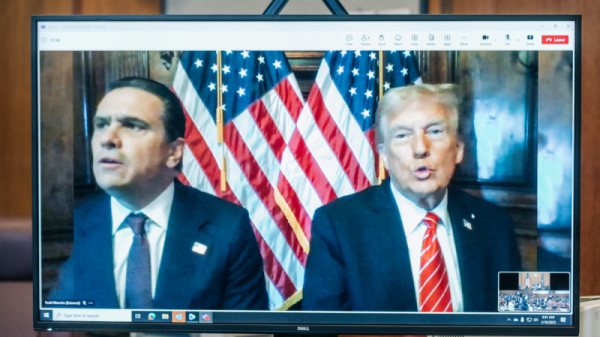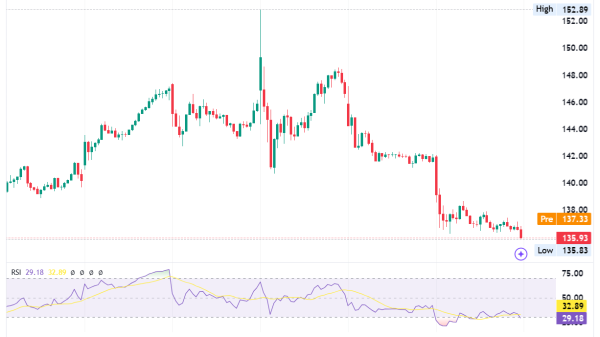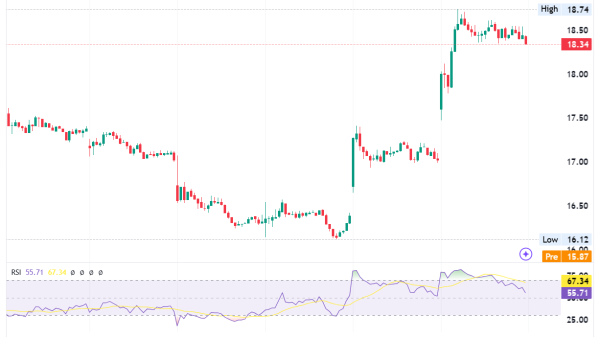Russia’s 2024 Anti-Satellite Weapon and Baltic Expansion
In a world where geopolitical strategies constantly evolve, recent events involving Russia highlight the dynamic interplay of power on both terrestrial and extraterrestrial fronts. Notably, two significant developments in May 2024 have underscored this reality. First, Russia allegedly launched an anti-satellite weapon. Second, Russia announced plans to expand its territorial waters in the Baltic Sea. These actions not only heighten global tensions but also provoke important questions. They prompt us to consider the future of international relations, security, and peace.
Russia’s Anti-Satellite Weapon: A New Frontier of Warfare?
On 22nd May 2024, the United States accused Russia of launching an anti-satellite weapon into orbit. The satellite, named Cosmos 2576, was launched from Russia’s Plesetsk Cosmodrome on 16th May 2024. According to Pentagon spokesman Brigadier General Pat Ryder, Russia launched a satellite into low Earth orbit, assessed as a counter space weapon. This highlights the Pentagon’s belief that the satellite could target other satellites in orbit.
Russia’s Roskosmos state space agency confirmed the launch. However, the latter stated it was in the interests of the Defence Ministry of the Russian Federation. This suggests a direct military application. General Ryder also detailed that Russia deployed this counter space weapon into the same orbit as a US government satellite. This manoeuvre has drawn significant concern from US Space Command, which verified the satellite as capable of attacking other satellites in low Earth orbit.
This development comes amidst ongoing clashes at the United Nations between Moscow and Washington over the militarisation of space. Maria Zakharova, the Russian foreign ministry spokeswoman, accused the US of attempting to turn space into an arena for military confrontation. Space analysts have noted the strategic positioning of Cosmos 2576, which mirrors the orbit of America’s USA 314 satellite. This posturing suggests that space could become a battleground, reflecting terrestrial geopolitical tensions.
The backdrop of these events includes a 2023 report by the Center for Strategic and International Studies, indicating that Russia has been developing various anti-satellite weapons. Given the ongoing conflict in Ukraine, the US views these developments with increased alarm, recognising the potential for such technologies to disrupt global satellite communications and surveillance capabilities.
Russia Expands Baltic Territorial Waters on 21st May 2024
Parallel to its space activities, Russia has made strategic moves in the Baltic Sea. On 21st May 2024, the Russian defence ministry announced plans to expand the country’s territorial waters near its maritime border with Lithuania and Finland. This announcement has sparked anxiety among Baltic Sea nations, particularly Sweden.
Sweden’s defence chief, Micael Bydén, expressed grave concerns. He indicated that Putin has both eyes on Gotland and aims to gain control of the Baltic Sea. Gotland is Sweden’s largest island. It is strategically located in the middle of the Baltic Sea. Consequently, it is a crucial point of interest in regional security dynamics.
Furthermore, Bydén emphasised that if Russia takes control and seals off the Baltic Sea, it would enormously impact lives in Sweden and all other countries bordering the Baltic Sea. This situation reflects widespread apprehension. Many fear Russia’s control over this vital maritime region could disrupt trade and security for numerous countries.
The presence of Russian shadow tankers in Sweden’s exclusive economic zone off Gotland’s eastern coast further complicates the situation. These covert operations indicate Russia’s intent to influence the region. In response, Sweden has reintroduced permanent troops to Gotland since 2016, a move prompted by Russia’s annexation of Crimea in 2014. Sweden’s recent accession to NATO in March 2024, covered by NATO’s Article 5 guarantee, adds another layer of defence and deterrence against potential Russian aggression.
Bydén articulated a stark warning, suggesting that if Putin invades Gotland, he can threaten NATO countries from the sea, which would end peace and stability in the Nordic and Baltic regions. This statement underscores the potential for significant geopolitical upheaval should Russia continue its aggressive stance.
Strategic Impact of Russia’s May 2024 Moves in Space and Sea
The recent actions by Russia in space and the Baltic Sea illustrate the interconnectedness of global security. Space, increasingly viewed as a potential frontier for warfare, presents unique challenges due to global technological dependencies. Satellites play crucial roles in communication, navigation, and surveillance, making them prime targets in any military conflict. The destruction or disruption of satellite networks could cripple a nation’s military and civilian infrastructure. This would lead to significant economic and security ramifications. As nations rely more heavily on satellite technology for daily operations, the vulnerability of these assets becomes a critical point of concern.
Similarly, the strategic significance of Gotland in the Baltic Sea highlights regional security concerns among NATO members and neighbouring countries. Control over this island could give Russia a formidable advantage in asserting dominance over the Baltic Sea. This would potentially disrupt the balance of power in the region. Gotland’s geographical position allows for the monitoring and control of maritime traffic. Therefore, it is a pivotal point for both military and commercial activities. Moreover, its proximity to several NATO member states amplifies the threat perception. This prompts increased military readiness and strategic planning. The presence of Russian forces on Gotland would not only bolster Russia’s regional influence but also pose a direct challenge to NATO’s defensive posture. Consequently, it necessitates a robust and coordinated response from the alliance.
Predictions: May 2024 Events and Future Geopolitics
Looking forward, these developments suggest a few key trends. First, the militarisation of space will likely accelerate, with more nations developing and deploying anti-satellite weapons. This escalation could lead to new international treaties and regulations to prevent space from becoming a new theatre of war.
Second, the geopolitical landscape of the Baltic Sea will remain tense, with NATO strengthening its presence and defensive measures in response to Russian activities. The inclusion of Sweden in NATO further complicates Russia’s ambitions, potentially leading to increased military posturing on both sides.
Finally, these events underscore the need for robust international dialogue and cooperation to manage and mitigate conflicts. Diplomatic efforts will be crucial in addressing the root causes of these tensions and finding pathways to peace and stability.
The actions of Russia in May 2024 highlight the intricate dance of geopolitical strategies in both space and sea. These developments underscore the dynamic and multifaceted nature of modern international relations. As nations navigate these challenges, the importance of maintaining open lines of communication and fostering collaborative security measures cannot be overstated. Effective dialogue and cooperation are essential to mitigating the risks associated with such geopolitical manoeuvres.
The future will undoubtedly bring more complexities and unforeseen challenges. However, the path to a stable and secure global order remains attainable with careful diplomacy and strategic foresight. It is crucial for global leaders to work together, prioritising peace and stability to ensure a safer world for all.
The post Russia’s 2024 Anti-Satellite Weapon and Baltic Expansion appeared first on FinanceBrokerage.





























